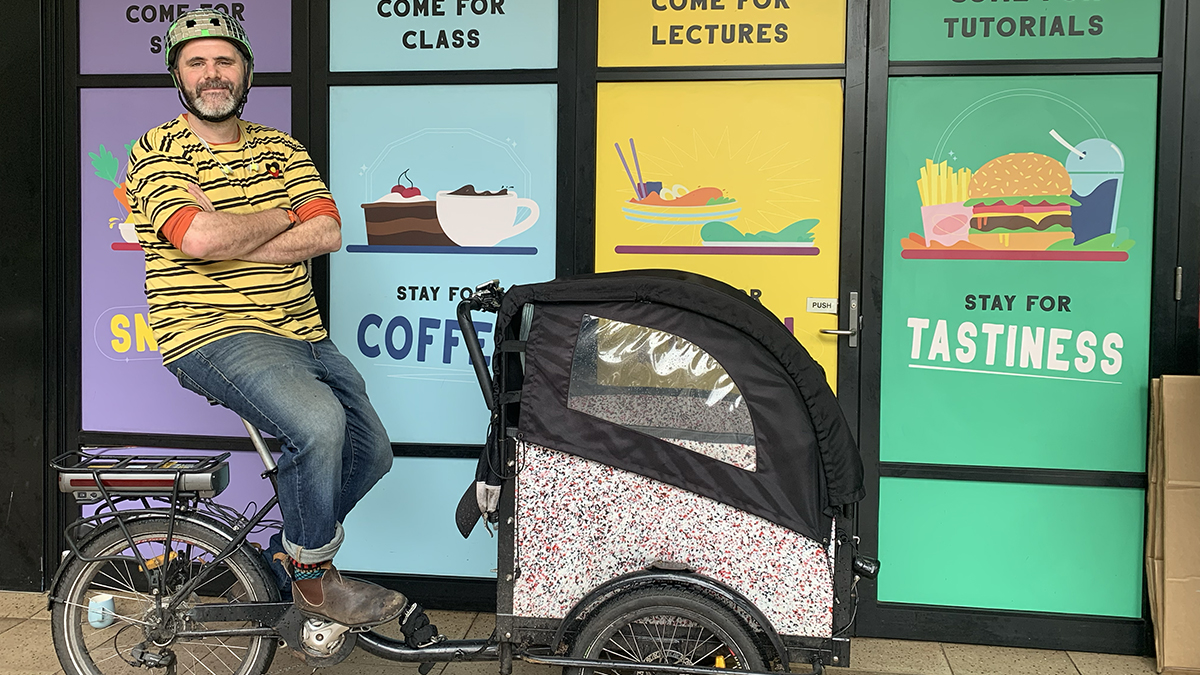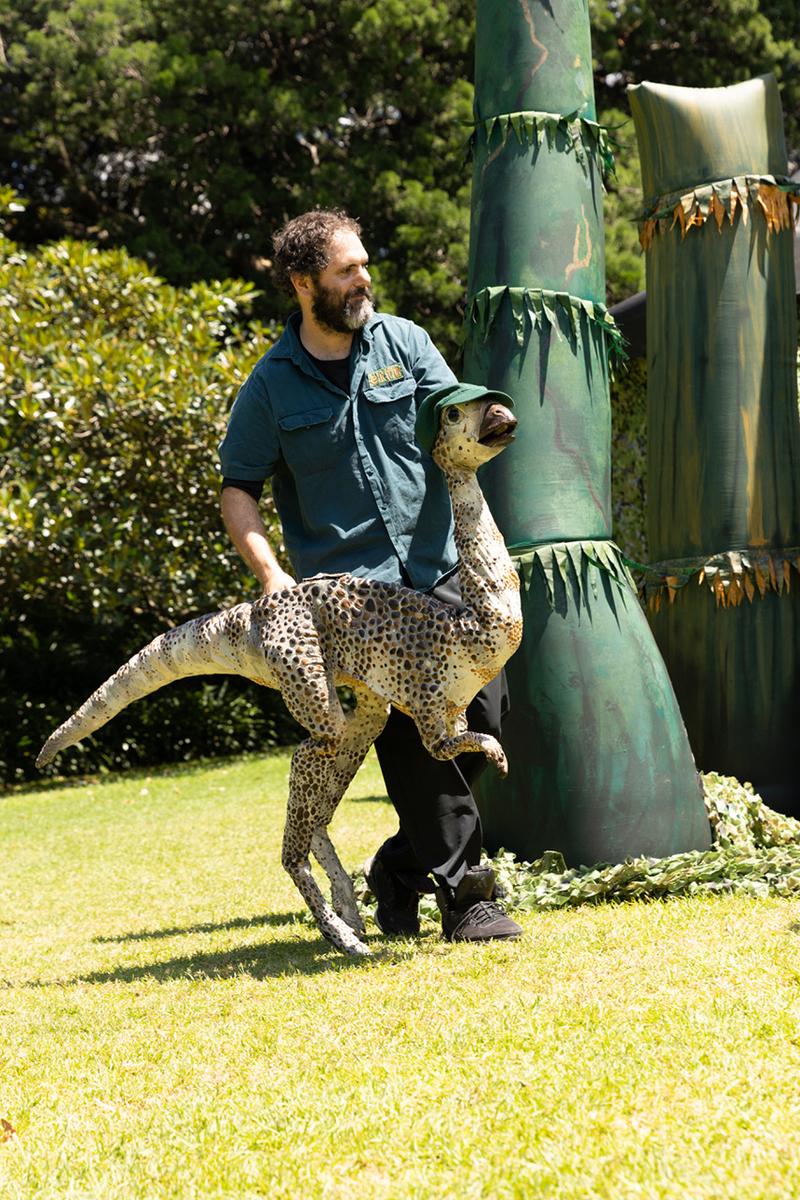
A long involvement with Arc at UNSW, a community of volunteers and a focus on sustainability created the perfect fit.
Miles Portek says by the time he finished a combined Science and Arts degree at UNSW, “there was no more science, it was all arts”.
“I spent a lot of my time involved in campus life, and mostly with Arc, the student organisation.”
Miles started in Arc’s yellow shirt program in 2003, went on to host trivia and bingo in the uni bar and to help put on music festivals. He worked as a casual for events at the Roundhouse and, after graduating, became front of house manager at the White House, which has now closed.
In 2013, Miles donned a 4-metre long therapod suit when he joined the physical theatre company Erth. After moving to New York, he visited 44 of 48 contiguous US states as the team toured and drove the equivalent of New York to Los Angeles and back three times.
“The giant dinosaur puppets look amazing from afar but are also designed for the kids to touch and interact with on stage,” Miles says. “I've seen every type of emotion from a child standing in front of a dinosaur that they only read about before in books.”

After returning to UNSW in 2017, he became the Arc Sustainability Officer and, during COVID, leapt at the opportunity to manage a food hub. He “had been training for it”, volunteering at Addi Road Food Pantry in Marrickville with his wife Roz, who coordinated the hamper program.
Since May 2020, Arc’s Food Hub, near Gate 2 on lower campus, has been open three days a week for two hours a day, providing free food to students.
“It's such a privilege to be able to do this, and we're very thankful to Estate Management who let us use the space,” Miles says.
“We figure we’ve just given out our 500,000th meal. The numbers have grown from about 60 visits in a day to our peak this year of 522 in a day – remembering a day for us is two hours. In big weeks, we have more than 1400 visits,” Miles says.
The Food Hub also has a 24-hour food cupboard that’s filled with bread three times a week. “And it’s emptied three times a week,” says Miles. “There's always food available for students.”
Sustainability and volunteering are key
Miles rides his cargo bike to uni, picking up about 40 to 50 kilos of sourdough bread on the way. He says if you were to buy the bread in store, it would cost around $700, but because it's one day old, it costs him $0.
“I'm the only thing stopping that bread from being thrown in a bin,” he says. “The Food Hub is a core sustainable part of the University where we're diverting waste.”
Miles says there isn’t much food waste at the Food Hub because they have a cool room, and they focus on staples like bread, potatoes and carrots as well as long life bulk supplies. Any leftovers go into the University's organics cycle.
Most of the volunteers start as Food Hub attendees.
“They say, ‘Thank you so much. I'd like to give back. How can I volunteer?’
“Then they meet other volunteers, they make friends, and once a month, they go to the Oz Harvest restaurant and have lunch together as a Food Hub team. They form valuable connections that they wouldn't have otherwise. And it’s interdisciplinary – with people from law, environmental sciences, electrical engineering. Everyone volunteers at Food Hub.”
What's the best advice you ever received?
Bread opens doors.
What's one thing that makes you happy?
Scuba diving.
What day in your life would you like to relive?
The first day I saw a manta ray under the ocean while I was scuba diving in the Galapagos Islands – 9 May 2013. Wow. It was the best.
What's the best thing you watched in the last year?
I saw How to Blow Up a Pipeline at the Golden Age Cinema.
- Log in to post comments
